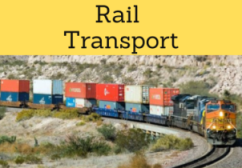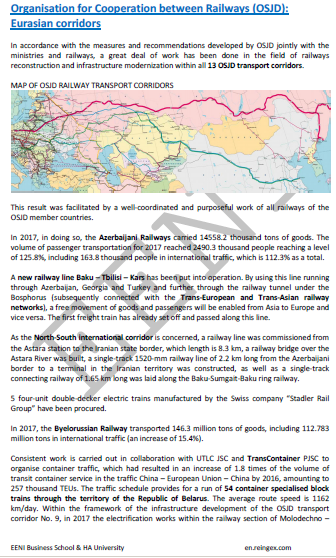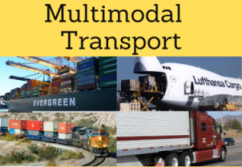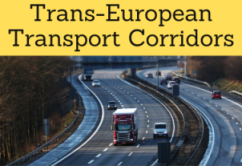Organization for Cooperation between Railways (OSJD)

Eurasian rail transport. Europe-Asia Logistics Corridors. Railways
- Introduction to the Organization for Cooperation between Railways (OSJD)
- Euro-Asian railway system
- History of the Organization for Cooperation between Railways
- Eurasian rail transport corridors
- Agreement on international carriage of goods by rail (SMGS)

The Subject “Organization for Cooperation between Railways (OSJD)” belongs to the following Online Programs taught by EENI Global Business School:
Courses: Rail transport, Multimodal transport, Central Eurasia, Orthodoxy and Business.

Diplomas: Foreign Trade, International Transport.

Masters: International Transport, International Business, Foreign Trade.
Doctorate: Global Logistics, World Trade.
Languages:  (summary in
(summary in  Organización para la Cooperación entre Ferrocarriles (OSJD)
Organización para la Cooperación entre Ferrocarriles (OSJD)
 Organization pour la Coopération des Chemins de Fer
Organization pour la Coopération des Chemins de Fer  Organização para Cooperação entre Ferrovias).
Organização para Cooperação entre Ferrovias).
Area of Knowledge: Foreign Trade (International Rail Transport Law).
Organization for Cooperation between Railways (OSJD).
The Organization for Cooperation between Railways (OSJD) is an Eurasian institution related to the Eurasian rail transport.
Organization for Cooperation between Railways (OSJD):

One of the objectives of the Organization for Cooperation between Railroads is the improvement and development of the railway communications between Europe and Asia, as well as the promotion of the Euro-Asian Multimodal Transport.

The member countries of the OSJD are Azerbaijan, Albania, Afghanistan, Belarus, Bulgaria, Cuba, Czech Republic, Estonia, Hungary, Georgia, Iran, Kazakhstan, Kyrgyzstan, Latvia, Lithuania, Moldova, Mongolia, North Korea, Poland, Romania, Russia, Slovakia, South Korea, Tajikistan, Turkmenistan, Uzbekistan, Ukraine, Vietnam.
The main agreements of the Organization for Cooperation between Railroads are:
- Agreement on international passenger traffic by rail (SMPS)
- Agreement on international carriage of goods by rail (SMGS)
Headquarters of the OSJD: Warsaw (Poland).

- Almaty-Bishkek Corridor
- Corridor of the Ashgabat Agreement
- Silk Road
- East-West Corridor (Myanmar-Vietnam)
- North-South Corridor (India-Russia)
- Bangladesh-Myanmar Corridor
- Afghanistan-Turkey Corridor
- China-Central-West Asia Corridor
- Europe-Caucasus-Asia Corridor
- Kyrgyzstan-Iran Corridor
- Nanning-Singapore Corridor
- China-Pakistan Corridor
- Islamabad-Istanbul Corridor
- China-Russia Corridor
- Trans-Siberian Railway (Russia, North Korea)
- Trans-Caspian Corridor
- India-Afghanistan Corridor
- Baltic-Adriatic Corridor
- North Sea-Baltic Corridor
- Pan-European Corridor II (Russia-Germany)
- Pan-European Corridor IX (Finland-Greece)

(c) EENI Global Business School (1995-2024)
We do not use cookies
Top of this page



